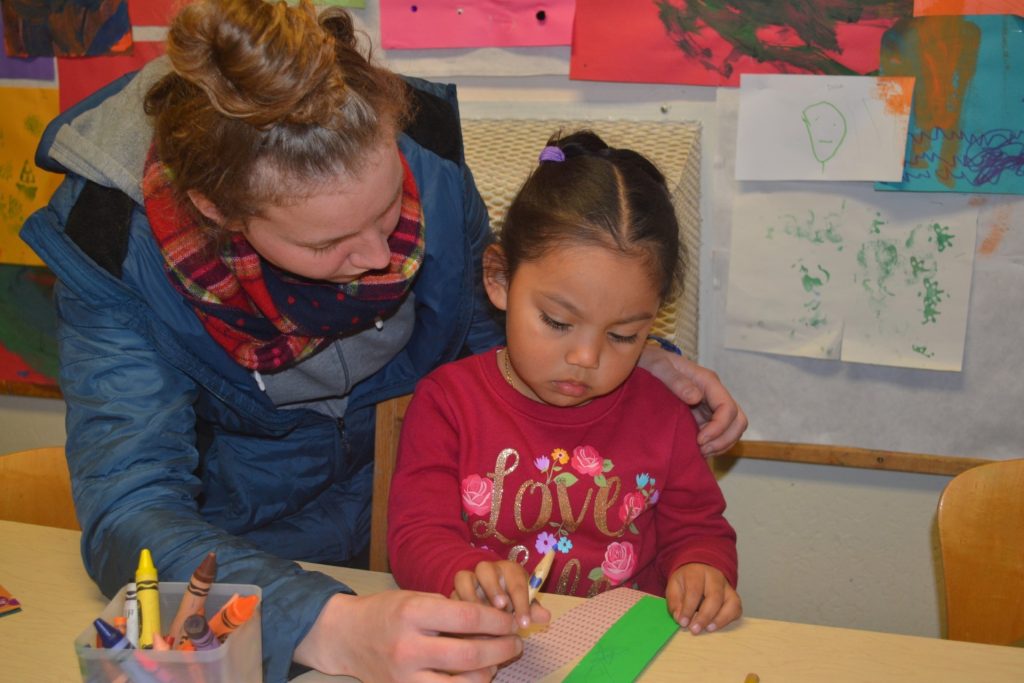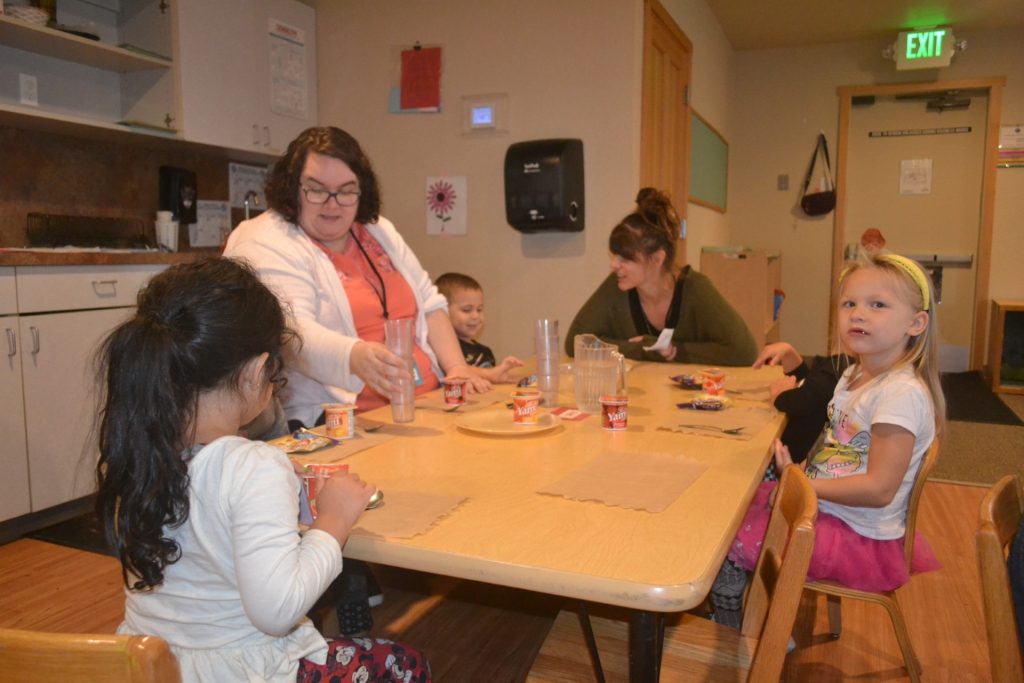The job of taking care of our youngest has changed noticeably over the decades, and the Child Care Action Council (CCAC) actively supports those in the industry with ongoing education and support. Preschoolers are the leaders of our future, so it behooves us to appreciate the work it takes to nurture curious, intelligent, and thoughtful adults. CCAC believes in the quality of a child’s early years.
Child Care Action Council Thanks Brenda’s Family Childcare
For 35 years Brenda Galbraith owned and operated an in-home childcare for youngsters in the Aberdeen area. She began by caring for family members. Word got around, and she soon realized it was necessary to become licensed to extend care to others. Her home’s 1,000-square-foot basement provided a large space for the children as well as all the many supplies and equipment needed to run an interactive and creative environment.
Brenda took advantage of support from the Child Care Action Council for the Early Achievers program, which offers consultation and coaching on topics related to the childcare environment. Coaching frequency and content is tailored to the provider’s needs. Topics range from professionalism to behavior management. Brenda achieved a Child Development Associate (CDA) certification, one type of credential available for early childhood educators working with children from birth to age five.
“I always like seeing the children want to come in and to learn what was coming next,” recalls Brenda. She kept a calendar of seasonal activities with crafts, projects, immersion activates and lots of reading. She ran her business as if everyone was family. “Kindness matters,” she believes.
Last year Brenda retired. She had hoped to pass along the business but unfortunately that did not work out, which has left a clear need for care in the Harbor area. CCAC wants to publicly acknowledge and thank Brenda for her many years of service to those in her community.

Are You Interested in Becoming a Licensed Child Care Provider?
You may want to offer services in your home, or you may have plans for a larger center.
“People operating out of their home have different requirements than a center,” notes Kristin Gomez. She is the CCAC Early Achievers Regional Coordinator, managing a team of coaches and Holding Hope mental health consultants. These are the people who provide support to the providers to grow quality programs.
The process to become a licensed childcare provider in a home or center is similar, with center requirements being greater.
You will first need to attend a licensing orientation, which can be done online. This will answer many questions and help you decide if this is the path you want to take.
Orientation occurs through the Washington State Department of Children, Youth and Families (DCYF). Next, you complete and submit the application. Forms come from DCYF and must be completely and accurately filled out. There may be fees with the application. Proof of a high school diploma or equivalent are required.
Then your facility will have an inspection to make sure it meets safety and health standards. It is essential that your site is clean, safe, and well-organized, and that you have all the necessary equipment and supplies.
Staff must undergo a background check and pass a TB (tuberculosis) test. When all the criteria are satisfactorily met and your license is approved, you can begin operating childcare in your home. Those wanting licensing for a childcare center have additional steps.
Evolving Field of Child Care
“State education requirements have changed over the past five years and have become more rigorous,” says Kristin. There has also been a greater interest in creating outdoor programs which primarily operate outside. “People should consider many things before opening a child care program, such as curriculum, materials, ages served and whether they will accept families with subsidies. If so, they will need to join Early Achievers,” she adds.
People working with youngsters are facing increased behavioral challenges for several reasons. Youth are still behind from the isolation and limitations during COVID. Screens and social media are another aspect to deal with. Parents are learning that services are not babysitters but professionals with skills and education. The spectrum for children mentally and neurologically is broadly divergent, meaning many have additional needs.

CCAC’s Early Achievers Program Makes a Difference
Early Achievers is a quality recognition program that offers consultation, coaching, scholarships, and resources for the childcare provider. “We want to continue to expand on quality interactions with the children every day,” says Melinda Luark, one of the Early Achievers Consultant Coaches. She listens to the concerns providers may have and can provide information and feedback. It can include help with technology, connection to educational classes, or resources for parents.
CCAC Offers Many Services for Families
“I love the purpose of the work, which is supporting children and families. It is a relations-based field. People want to be heard and validated,” says Kristin. In addition to Early Achievers, the Child Care Action Council has many valuable programs for parents. They encourage literacy, reading with children, STEM (science, technology, engineering, math) activities, and making connections to other families and community resources, to name a few.
Visit the Child Care Action Council website for more complete information.
Sponsored












































